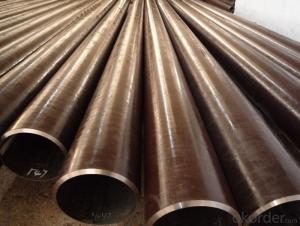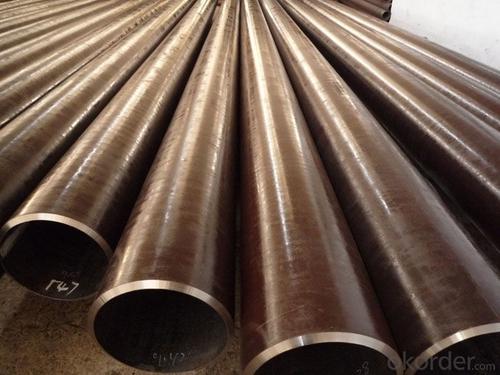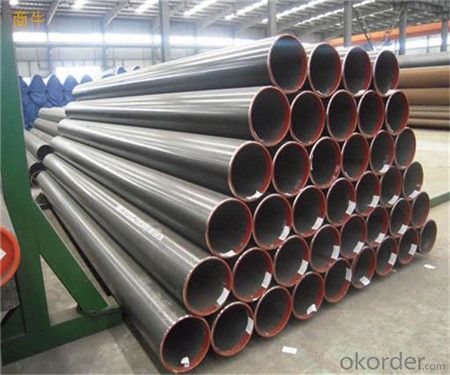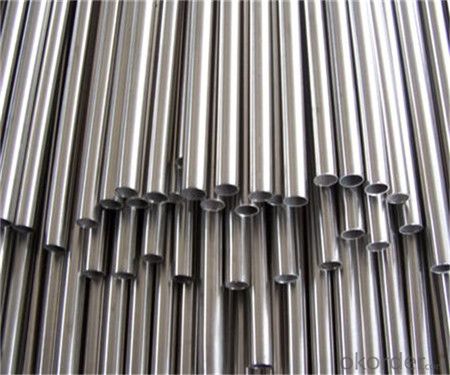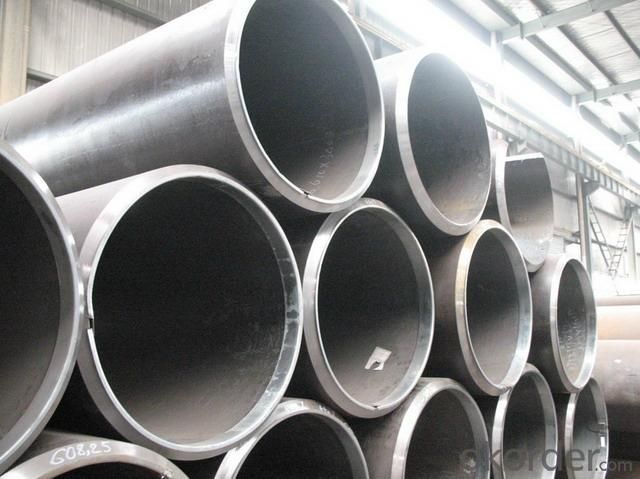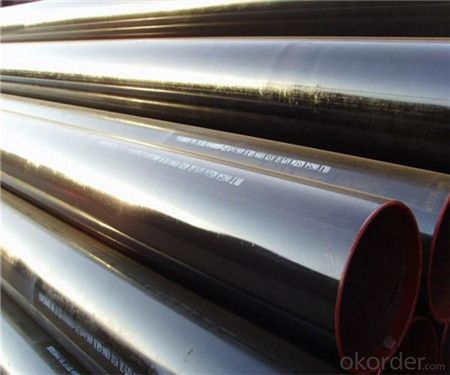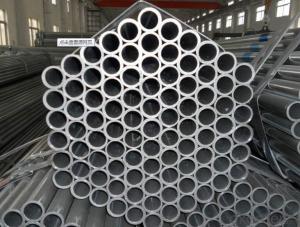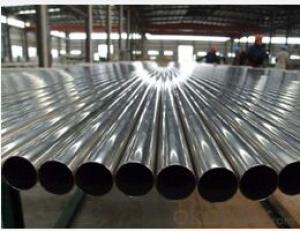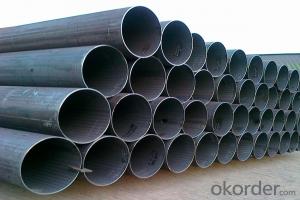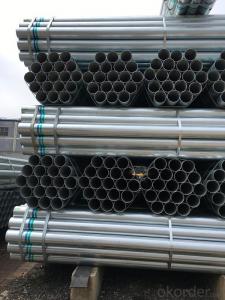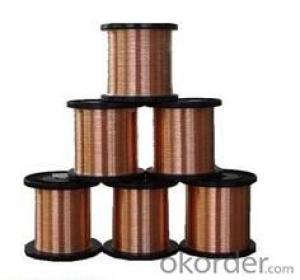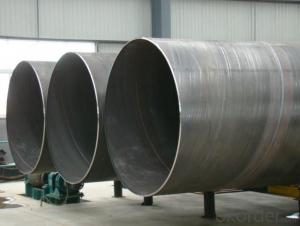Line Welded Pipe for Sour service
- Loading Port:
- China Main Port
- Payment Terms:
- TT or LC
- Min Order Qty:
- 30 m.t.
- Supply Capability:
- 12000 m.t./month
OKorder Service Pledge
OKorder Financial Service
You Might Also Like
1、Structure of Line pipe for sour service
The line pipe for sour service (Psl 2), which is suitable for the use in sour environment condition. The material is selected strictly according to NACE MR01-75, which is fine grain fully killed clean steel made by basic oxygen steel-making or electric furnace. The content of element P and S are very lower so that it has not only high resistance features against H2S and CO2, but also has better performance of impact energy. The test results of SSC according to NACE TM0177-2005 and HIC according to NACE TM0284-2003 have reached the requirement of API 5L (44th edition) after the inspection of authorities.
Mechanical properties
2、Main Features of for sour service
• High manufacturing accuracy
• High strength
• Small inertia resistance
• Strong heat dissipation ability
• Good visual effect
• Reasonable price
3、Seamless Pipe for sour service Specification:
Standard | GB, DIN, ASTM ASTM A106-2006, ASTM A53-2007 |
Grade | 10#-45#, 16Mn 10#, 20#, 45#, 16Mn |
Thickness | 8 - 33 mm |
Section Shape | Round |
Outer Diameter | 133 - 219 mm |
Place of Origin | Shandong, China (Mainland) |
Secondary Or Not | Non-secondary |
Application | Hydraulic Pipe |
Technique | Cold Drawn |
Certification | API |
Surface Treatment | factory state or painted black |
Special Pipe | API Pipe |
Alloy Or Not | Non-alloy |
Length | 5-12M |
Outer Diameter | 21.3-610mm |
Grade | 20#, 45#, Q345, API J55, API K55, API L80, API N80, API P110, A53B |
Standard | ASME, ASTM |
4、Packaging & Delivery
Packaging Details: | seaworthy package,bundles wrapped with strong steel strip |
Delivery Detail: | 15-30days after received 30%TT |
5、FAQ of for sour service:
①How is the quality of your products?
Our products are manufactured strictly according to national and internaional standard, and we take a test
on every pipe before delivered out. If you want see our quality certifications and all kinds of testing report, please just ask us for it.
Guaranteed: If products’ quality don’t accord to discription as we give or the promise before you place order, we promise 100% refund.
②How about price?
Yes, we are factory and be able to give you lowest price below market one, and we have a policy that “ for saving time and absolutely honest business attitude, we quote as lowest as possible for any customer, and discount can be given according to quantity”,if you like bargain and factory price is not low enough as you think, just don’t waste your time.Please trust the quotation we would give you, it is professional one.
③Why should you chose us?
Chose happens because of quality, then price, We can give you both.Additionally, we can also offer professional products inquiry, products knowledge train(for agents), smooth goods delivery, exellent customer solution proposals.Our service formula: good quality+good price+good service=customer’s trust
SGS test is available, customer inspection before shipping is welcome, third party inspection is no problem.
6、 for sour service Images:
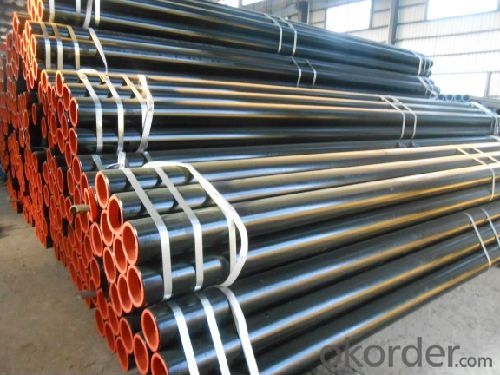
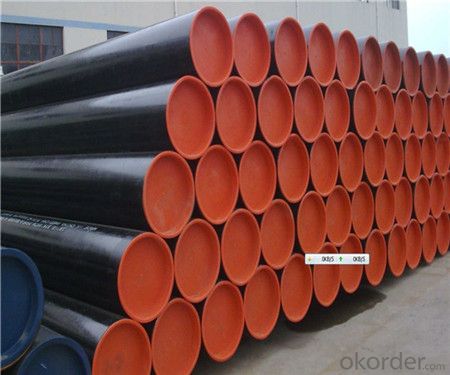
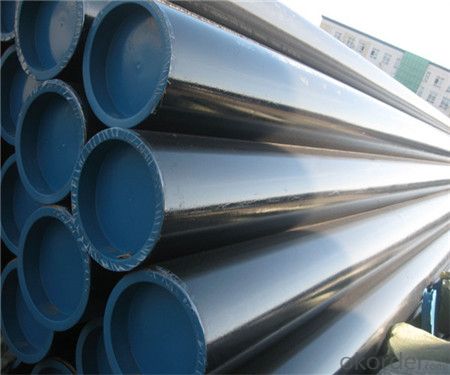
- Q: How to descaling galvanized steel pipe?
- Galvanized steel tubes will not rust in principle.... Batch rust with weak acid water immersion, individual can use steel wire brush brush on it.
- Q: Are steel pipes suitable for underground drainage systems?
- Indeed, steel pipes prove to be a fitting choice for underground drainage systems. The multitude of qualities possessed by steel pipes contributes to their popularity in this field. Firstly, their robustness and endurance enable them to withstand high levels of pressure and heavy loads. Moreover, steel pipes are resistant to corrosion, which prolongs their lifespan and reduces the need for frequent maintenance or replacement. Furthermore, steel pipes possess the advantage of adaptability and versatility in various soil conditions. They can be easily customized to match the specific requirements of the drainage system, encompassing different diameters and lengths. Additionally, steel pipes can be welded together, ensuring a secure and tight connection that effectively prevents leakage and the infiltration of groundwater. Another benefit of utilizing steel pipes in underground drainage systems lies in their capability to handle a wide range of temperatures. Their resistance to extreme heat or cold renders them suitable for diverse climates and environments. Nevertheless, it is important to acknowledge that steel pipes can be more costly compared to alternative materials such as PVC or HDPE pipes. Additionally, their weight and installation process may pose challenges, necessitating specialized equipment and expertise. In conclusion, steel pipes provide a dependable and long-lasting solution for underground drainage systems, particularly in regions where durability and strength are vital considerations.
- Q: Stainless steel tube, also known as why tube?
- Use can be divided into oil well pipe (casing, tubing and drill pipe etc.), line pipe, boiler tube, mechanical structure, hydraulic prop pipe pipe, cylinder pipe, geological pipe, chemical pipe (high pressure fertilizer pipe, oil cracking tube) and shipbuilding pipe etc.
- Q: What does "spiral welded steel pipe" DN325*10 mean?
- Spiral welded steel pipe with nominal diameter of 325mm and wall thickness of 10mm
- Q: How are steel pipes inspected for defects?
- Steel pipes are typically inspected for defects using various non-destructive testing methods such as ultrasonic testing, magnetic particle inspection, and visual inspection. These techniques help identify any cracks, corrosion, or other defects in the pipes, ensuring their structural integrity and quality.
- Q: How are steel pipes protected against abrasive wear?
- Steel pipes are protected against abrasive wear through various methods such as lining the interior of the pipes with abrasion-resistant materials, applying protective coatings on the pipe surface, or using ceramic tiles or liners. These measures help minimize the effects of friction and abrasion, ensuring the longevity and durability of the steel pipes.
- Q: How are steel pipes used in the construction of stadiums and arenas?
- Steel pipes are commonly used in the construction of stadiums and arenas for various purposes. They are primarily used for structural support, providing a sturdy framework for the buildings. Steel pipes are also used in the installation of plumbing systems, helping to transport water and other fluids throughout the facility. Additionally, steel pipes are utilized for the construction of ventilation and HVAC systems, ensuring proper air circulation and temperature control within the stadiums and arenas.
- Q: What is the role of steel pipes in the chemical manufacturing industry?
- Steel pipes are an essential component in the chemical manufacturing industry as they are used for various purposes such as transporting chemicals, gases, and liquids safely and efficiently. They provide a durable and corrosion-resistant infrastructure, ensuring the integrity of the chemical processes. Steel pipes also play a crucial role in maintaining the overall safety and reliability of the manufacturing operations.
- Q: How are steel pipes protected against ultraviolet radiation?
- Steel pipes are typically protected against ultraviolet radiation by applying a layer of protective coating or paint. This coating acts as a barrier, preventing the harmful effects of UV rays from deteriorating the steel and reducing its lifespan.
- Q: Can steel pipes be used for geothermal systems?
- Yes, steel pipes can be used for geothermal systems. Steel pipes are commonly used in geothermal systems due to their durability, high strength, and resistance to corrosion. They can effectively handle the high temperatures and pressures associated with geothermal operations, making them a reliable choice for transporting geothermal fluids. Additionally, steel pipes are readily available and cost-effective, making them a practical option for geothermal system installations.
Send your message to us
Line Welded Pipe for Sour service
- Loading Port:
- China Main Port
- Payment Terms:
- TT or LC
- Min Order Qty:
- 30 m.t.
- Supply Capability:
- 12000 m.t./month
OKorder Service Pledge
OKorder Financial Service
Similar products
Hot products
Hot Searches
Related keywords
